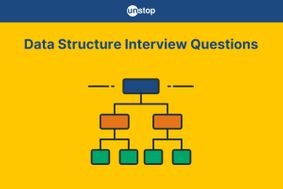- Self-Introduction For Freshers: Importance
- Components Of An Effective Self-Introduction
- How To Craft A Compelling Self-Introduction
- Self-Introduction for Freshers: Samples
- How To Highlight Your Qualifications & Experiences
- Incorporating Personal Interests & Future Plans
- Mastering Verbal & Non-verbal Communication Techniques
- Tailoring Your Introduction For Different Job Roles
- Common Mistakes To Avoid During Self-Introductions
- Conclusion
- Frequently Asked Questions (FAQs)
- Importance Of Extracurricular Activities In Resumes
- Types Of Extracurricular Activities To Include
- Best Extracurricular Activities For Different Fields
- Listing Extracurricular Activities In A Resume
- Adding Activities In The Education & Achievement Sections
- Soft Skills Gained From Extracurricular Activities
- Tailoring Activities Relevant To The Job Application
- Tips For Effective Inclusion Of Extracurricular Activities In Your Resume
- Frequently Asked Questions (FAQs)
- Importance Of Declining A Job Offer Respectfully
- Politely Decline A Job Offer With Gratitude
- Practical Tips For Declining Through Email
- Declining A Job Offer Over The Phone
- Declining After Acceptance Of Job Offer
- Salary, Timing, & Other Offers As Reasons
- Positive Relationship After Declining
- Frequently Asked Questions (FAQs)
- What is a Salary Increment?
- Factors Affecting Salary Increment
- Procedure for Salary Increment
- Formula to Calculate Salary Increment
- Formula to Calculate Salary Increment Percentage
- Benefits of Salary Increment
- How to Negotiate A Fair Salary Increment
- Importance Of Transparency In Salary Increments
- Making Better Financial Plans After Salary Increment
- Resignation After or Before Salary Increment
- Frequently Asked Questions (FAQs)
- Job Offer Acceptance Letter: Meaning & Importance
- Key Components of a Job Acceptance Letter Explained
- Job Offer Acceptance Letter Template
- Accepting a Job Offer via Email: Important Tips
- Job Offer Acceptance Letter Samples
- Composing A Job Offer Acceptance Letter: Key Tips
- Post-Acceptance Protocol
- Conclusion
- Frequently Asked Questions (FAQs)
- What is a Provisional Certificate?
- Provisional Certificate Application Process
- Sample Of A Provisional Certificate
- Benefits Of a Provisional Certificate
- Conclusion
- Frequently Asked Questions (FAQ)
- Definition Of Your Current CTC & Expected CTC
- Factors To Consider During Salary Negotiation
- Tips & Examples To Answer What Salary Do You Expect
- Understanding How Your CTC Is Calculated
- Crafting & Presenting Your Current CTC Effectively
- How To Write Current CTC & Expected CTC In Email
- Analyzing Detailed Breakdown Of Your CTC
- Conclusion
- Frequently Asked Questions (FAQs)
- Definition & Purpose Of Notice Period
- Importance Of Notice Period
- Types Of Notice Period
- Tasks & Expectation During Notice
- Notice Period Format Sample
- Other Aspects Related To Notice Period
- Conclusion
- Frequently Asked Questions (FAQs)
- Most Common Reasons for Job Change
- Current Trends Influencing Job Changes (2024-2025)
- Tips to Craft Your Best Answer for Job Change
- Conclusion
- Hard Work Vs Smart Work- Difference
- Examples Of Hard Work Vs Smart Work
- Ways To Hone Your Smart Work Skills
- Utilizing SMART Goal Approach
- Essence Of Hard Work
- Essence Of Smart Work
- Combining Benefits Of Hard & Smart Work
- Enhancing Efficiency Work Approach
- Closing Thoughts
- Frequently Asked Questions
- Defining What Is Probation Period
- Activities During The Probation Period
- Salary During The Probation Period
- Importance Of Completing The Probation Period
- Probation Period Extension Explained
- How To Successfully Complete Probation Period
- Closing Thoughts
- Frequently Asked Questions (FAQs)
- Definition & Its Origin Of Garden Leave
- What Happens To An Employee During Garden Leave?
- Advantages Of Garden Leave
- Disadvantages Of Garden Leave
- Duration Of Garden Leave & Its Impact
- Identifying Employees Suitable For Garden Leave
- Best Time To Use Garden Leaves
- When To Avoid Gardening Leave
- Consequences Of An Employee Declining Garden Leave
- Employers' Guide To Making The Most Of Garden Leave
- Rights And Obligations Under Garden Leaves
- Summary
- Frequently Asked Questions (FAQs)
- What is an Interview?
- What Do Companies Look For During An Interview?
- Types Of Interview Formats
- Types Of Interview Questions
- Interview Tips For Freshers
- Conclusion
- Frequently Asked Questions (FAQs)
- Group Discussion & Its Purpose Explained
- Importance Of Group Discussion
- Types Of Group Discussion
- Characteristics Of Group Discussion
- Skills And Success Tips Of Group Discussion
- Mistakes & Topics To Avoid In Group Discussion
- Final Remarks
- Frequently Asked Questions
- Understanding What Job Application Is
- Nitty Gritty Of Job Application
- Step-by-step Guide On How To Apply For A Job
- Effective Tips For Job Applicants
- Conclusion
- Frequently Asked Questions (FAQs)
- Significance Of Emailing Your Resume
- What To Write In An Email When Sending A Resume
- Samples Emails When Sending A Resume
- Final Remarks
- Frequently Asked Questions (FAQs)
- Decoding Dress Code For Interview
- Interview Dress Code For Men
- Interview Dress Code For Women
- Outfits To Be Avoided For A Job Interview
- Conclusion
- Frequently Asked Questions (FAQs)
- Understanding Biodata in Job Applications
- Crafting an Effective Biodata for Your Job Search
- 10 Tips for an Effective Biodata
- Biodata vs. Resume vs. CV: Understanding the Differences
- Understanding a Biodata Format (Sample Template)
- Frequently Asked Questions (FAQs)
- Creating An Appealing Resume For Job Search
- 7 Types Of Resumes For Job Application
- Tips For Crafting An Effective Resume
- Conclusion
- Frequently Asked Questions (FAQs)
- Definition Of CTC
- Understanding The Components Of CTC
- Formula To Calculate CTC
- Example Of CTC Breakdown
- Benefits Of Cost To Company
- Understanding Gross Salary And Net Salary
- Conclusion
- Frequently Asked Questions (FAQs)
- Understanding Your Ambition In Life
- How To Answer The Question During Interview
- Do’s And Don'ts While Answering The Question
- Examples Of Sample Answers
- Summary
- Frequently Asked Questions
- Definition & Purpose Of An Apology Letter
- Understanding The Basic Components
- Knowing When To Write
- Tips To Craft An Effective Apology Letter
- Mistakes To Be Avoided
- Example & Format Of An Apology Letter
- Summary
- Frequently Asked Questions
- What Is A Job & What Is Leaving A Job
- Top 10 Reasons For Leaving A Job
- How To Prepare When Planning To Leave A Job
- Tips To Explain Your Departure To Your Employer
- Sample Answers For Leaving A Job
- Conclusion
- Frequently Asked Questions (FAQs)
- Annual Income & Calculation Explained
- Formula For Annual Income Calculation
- Examples Of Annual Income Calculation
- Gross Income Vs. Net Income
- Conclusion
- Frequently Asked Questions
- Understanding What Is Severance Pay
- Importance Of Understanding Severance Pay
- Why Companies Offer Severance Pay
- Essential Components Of Severance Package
- Eligibility Conditions For Severance Packages
- Tax Implications Of Severance Pay
- Conclusion
- Frequently Asked Questions (FAQs)
- Understanding A Job Application Letter
- Format Of A Job Application Letter
- Importance Of A Well-Crafted Application Letter
- Tips For Crafting A Compelling Job Application
- Sample Letters For Various Profiles
- Conclusion
- Frequently Asked Questions (FAQs)
- Meaning Of Job Profile & Purpose
- Key Components Of A Job Profile
- Benefits Of Job Profiles For Employers
- 5 Best Tips For Crafting An Effective Job Profile
- Common Pitfalls To Avoid In Job Profile Descriptions
- Job Profile Vs Profile Summary
- Summary
- Frequently Asked Questions (FAQs)
- Understanding Full and Final Settlement
- Components of Full and Final Settlement
- Pre-Requisite to Calculating FnF
- Calculating FnF: Process and Timing
- Final Settlement Letters
- Final Remarks
- Frequently Asked Questions
- Definition Of Teamwork Skills
- Types Of Teamwork Skills
- Benefits Of Teamwork Skills
- Strategies For Improvement Of Skills
- Showcasing Teamwork Skills Effectively
- Conclusion
- Frequently Asked Questions (FAQs)
- What are the Barriers of Communication?
- Types of Barriers of Communication
- Top Barriers of Communication: The Most Common Culprits
- Strategies to Overcome Communication Barriers
- Frequently Asked Questions (FAQs)
- Definition & Factors Of Workplace Anxiety
- Recognizing Signs & Symptoms Of Anxiety
- Strategies & Tips To Handle Workplace Anxiety
- Summary
- Frequently Asked Questions (FAQs)
Reason for Job Change: Best Answers, Examples & Why You Should Move

Changing jobs is a significant career decision, often driven by a blend of personal aspirations and professional circumstances. In today's dynamic job market, understanding the reason for a job change is crucial for both individuals seeking new opportunities and employers looking to attract and retain talent.
In this article, we will explore the most common reasons for job change, providing insights for job seekers on how to articulate their motivations effectively during interviews and for organizations to understand current talent trends.
Most Common Reasons for Job Change
The question, "Why are you looking for a job change?" is almost universally asked in interviews. It's not just about curiosity; recruiters want to gauge your motivations, your potential fit with their company culture, and your long-term career aspirations. Understanding the underlying reasons for a job change is the first step in formulating a compelling and authentic response.
People change jobs for a myriad of reasons, which can broadly be categorized into proactive (seeking growth) and reactive (addressing dissatisfaction) motivations.

I. Proactive & Growth-Oriented Reasons for Job Change
These reasons highlight a desire for personal and professional advancement, indicating an ambitious and forward-thinking individual.
Limited Career Growth Opportunities
This is consistently cited as a top reason. If your current role offers no clear path for promotion, increased responsibility, or leadership experience, seeking a new challenge is a natural progression.
Best Answer for Interview: "I've gained valuable experience in my current role and built a strong foundation, but I've reached a point where opportunities for advancement are limited. I'm actively seeking a role where I can take on more significant responsibilities, grow my leadership skills, and contribute to larger-scale projects, which aligns perfectly with the growth trajectory I see in this position."
Desire for New Challenges and Skill Development
When the learning curve flattens, or you feel your skills are becoming stagnant, a new environment can offer fresh problems to solve and technologies to master.
Best Answer for Interview: "I'm eager to continuously expand my skillset and take on new challenges that push my boundaries. While I've appreciated the work at my current company, I'm looking for an environment that offers more diverse projects and opportunities to develop [specific skills relevant to the new role], which I understand is a core aspect of this position."
Seeking Better Alignment with Career Goals
As individuals grow, their long-term career goals may evolve. A new role might offer a more direct path to achieving those aspirations.
Best Answer for Interview: "My long-term career goal is to [state a relevant goal, e.g., lead a product team, specialize in AI development]. While my current role has provided excellent foundational experience, this opportunity aligns more directly with where I see myself in the next five years, particularly given [mention a specific aspect of the new role/company]."
Pursuing a Passion or Industry Change
Sometimes, a deep-seated interest or a desire to contribute to a specific industry motivates a shift. This could involve leveraging transferable skills in a new domain.
Best Answer for Interview: "I've developed a strong passion for [new industry/field] and believe my [transferable skills, e.g., project management, analytical thinking] would be highly valuable in this domain. I'm looking for an opportunity to immerse myself in this area and contribute to a company at the forefront of [new industry]."
Seeking a More Innovative or Agile Environment
Some individuals thrive in fast-paced, cutting-edge environments that prioritize innovation and adaptability.
Best Answer for Interview: "I'm highly motivated by environments that foster innovation and embrace agile methodologies. From my research, [Company Name] appears to be at the forefront of [specific innovation/approach], and I'm keen to contribute my skills in such a dynamic setting."
II. Reactive & Dissatisfaction-Driven Reasons for Job Change
While these reasons stem from current dissatisfaction, it's crucial to frame them positively in an interview, focusing on what you're seeking rather than what you're leaving.
Inadequate Compensation and Benefits
While often a primary driver, explicitly stating "I want more money" is generally not the best answer for the reason for job change in an interview.
Best Answer for Interview: "I've consistently delivered strong results and taken on increased responsibilities in my current role. I'm now seeking an opportunity where my contributions are compensated in line with industry standards for my experience level and responsibilities, reflecting the market value of my skills." (Avoid directly quoting current salary or saying you're "underpaid.")
Poor Work-Life Balance
The desire for a healthier integration of personal and professional life has become a significant factor, especially post-pandemic, with the rise of remote work.
Best Answer for Interview: "I'm looking for a role that offers a sustainable work-life balance, allowing me to be highly productive professionally while also maintaining my personal well-being. I believe a healthier balance will enable me to bring my best self to work consistently and contribute more effectively long-term." (Avoid complaining about long hours or demanding schedules at your current job.)
Toxic Workplace Culture / Poor Management
This is a very common reason for job change, but criticizing a former employer is a major red flag for interviewers.
Best Answer for Interview: "I'm seeking a work environment that emphasizes [positive cultural traits, e.g., collaboration, open communication, supportive leadership, psychological safety]. From what I've learned about [Company Name], its culture of [mention specific positive cultural aspect] truly resonates with me and where I thrive." (Focus on what you desire in a new culture, not what was wrong with the old).
Lack of Recognition or Appreciation
Feeling undervalued can significantly impact morale and motivation.
Best Answer for Interview: "I'm looking for an organization where contributions are recognized, and there's a clear connection between individual effort and organizational success. I'm motivated by seeing the impact of my work and contributing to a team that celebrates achievements."
Company Restructuring or Instability
Layoffs, mergers, or significant strategic shifts can make employees feel insecure or misaligned.
Best Answer for Interview: "My previous company recently underwent a significant [restructuring/merger/downsizing], which led to [impact on your role/department]. This presented an opportune time for me to explore new opportunities that align with my long-term career stability and growth objectives." (Be factual, brief, and forward-looking.)
Relocation
A move for personal or family reasons is a perfectly valid reason for job change.
Best Answer for Interview: "I'm relocating to [New City/Area] due to personal/family reasons, and I'm actively seeking a role that allows me to continue leveraging my skills in this new location. Your company immediately stood out as an ideal fit given [mention company's presence/reputation in that area or remote policy]."
Current Trends Influencing Job Changes (2024-2026)
The landscape of job changes is continuously shaped by global and local trends. In India and globally, several factors are prominently driving talent mobility:
- Remote & Hybrid Work Flexibility: The post-pandemic era has solidified the demand for flexible work arrangements. Many individuals are willing to switch jobs to secure better remote or hybrid options, eliminating long commutes and improving work-life balance.
- Skills Gap & Continuous Learning: Rapid technological advancements (especially AI, Big Data, Cybersecurity) mean employees are actively seeking roles and companies that invest in their upskilling and provide opportunities to learn new, in-demand skills.
- Emphasis on Well-being & Mental Health: Beyond just salary, employees are prioritizing organizations that offer robust well-being programs, support mental health, and foster a culture that respects personal boundaries.
- Purpose-Driven Work: A growing number of professionals seek alignment with company values, mission, and social responsibility initiatives. Misalignment can be a strong motivator for change.
- Career Pivots & Industry Shifts: The gig economy and evolving industries are encouraging more individuals to make significant career changes, driven by new passions or emerging opportunities.
Find the best fit. Unlock endless job & internship opportunities!
Tips to Craft Your Best Answer for Job Change
Regardless of your specific reason for job change, the way you communicate it is paramount. Here's a framework for providing the best answer for the reason for job change in an interview:
- Be Honest, But Positive: Don't lie, but always frame your reasons in a positive light, focusing on what you're seeking, not what you're running away from.
- Focus on the Future & The New Opportunity: Pivot quickly to why this specific role and company excite you. Show how your decision is a logical step forward in your career journey.
- Highlight Growth & Ambition: Emphasize your desire to learn, grow, take on more responsibility, or contribute to meaningful work.
- Research the New Company: Tailor your answer to the company's values, mission, culture, and the specific requirements of the role. Show that you've done your homework.
- Avoid Negativity: Never badmouth your current or past employer, colleagues, or management. It reflects poorly on you, not them.
- Keep it Professional and Concise: Avoid overly personal details. Get to the point clearly and confidently.
Do's and Don'ts for Explaining Your Job Change
|
Do's |
Don'ts |
|
Focus on growth and new challenges. |
Complain about past employers or colleagues. |
|
Emphasize learning and skill development. |
Make it solely about money (even if it is). |
|
Align with your long-term career goals. |
Sound vague or unprepared. |
|
Highlight positive aspects of the new role. |
Blame others for your dissatisfaction. |
|
Show genuine interest in the company. |
Share excessively personal reasons. |
|
Be concise and professional. |
Lie or be inconsistent in your story. |
Conclusion
The reason for job change is a multifaceted concept, reflecting both individual aspirations and the evolving nature of the professional world. Whether driven by a quest for greater responsibility, a healthier work-life balance, or alignment with personal values, a thoughtful and positively framed explanation can significantly impact your success in securing your next role. By understanding the underlying motivations and preparing a compelling narrative, job seekers can confidently articulate why they want to change jobs and demonstrate their value to prospective employers.
You may also like to read:
An avid reader and an ambitious traveller, I like to curate stories. The instinctive desire to explore the unchartered territories of the unknown and unseen inspires me to find wonder in the cosmos. I find solace in the embrace of nature, and hope to create an environment of peace wherever I go.
Login to continue reading
And access exclusive content, personalized recommendations, and career-boosting opportunities.
Subscribe
to our newsletter
Blogs you need to hog!

How To Write Finance Cover Letter For Morgan Stanley (+Free Sample!)

55+ Data Structure Interview Questions For 2026 (Detailed Answers)

How To Negotiate Salary With HR: Tips And Insider Advice

![Explain Your Reason For Job Change Like A Pro! [8 Ways To Reply]](https://d8it4huxumps7.cloudfront.net/uploads/images/67e94a575a478_explore_a_varied_internship_opp.png?d=2000x2000)











Comments
Add comment